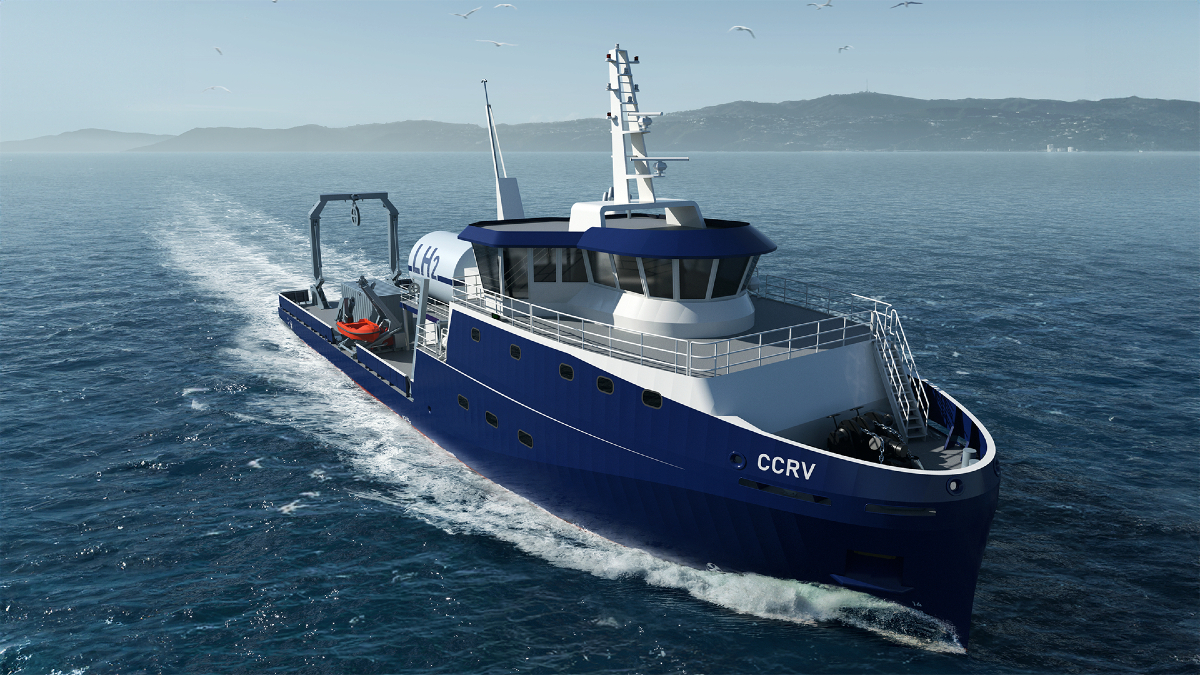Revolutionizing Maritime Research: First Liquid Hydrogen-Hybrid Vessel in the US
Key Ideas
- The University of California at San Diego's Scripps Institution of Oceanography receives approval for the design of a hydrogen-hybrid research vessel, aiming to operate on liquid hydrogen fuel 75% of the time.
- Collaboration between Glosten, Siemens Energy, Ballard Power, and Chart Industries is set to revolutionize maritime research and contribute to the wider adoption of hydrogen as an alternative fuel.
- The Coastal-class research vessel (CCRV) will replace the aging Robert Gordon Sproul and is the first liquid hydrogen-powered ship in the US, requiring the establishment of a new regulatory framework.
- The project, funded by California lawmakers, signifies a step towards decarbonisation in the maritime industry and sets important precedents for technical standards governing hydrogen-powered ships.
The University of California at San Diego's Scripps Institution of Oceanography has received approval in principle (AiP) from class society ABS for the design of a groundbreaking hydrogen-hybrid research vessel. The vessel, known as the Coastal-class research vessel (CCRV), is set to operate on liquid hydrogen fuel for 75% of its operations, a significant step towards reducing emissions and promoting environmental sustainability. The collaboration between naval architectural and marine engineering firm Glosten, along with Siemens Energy, Ballard Power, and Chart Industries, marks a milestone in the maritime industry's shift towards alternative fuels.
The CCRV's design and construction, funded by a US$35M allocation from California lawmakers, will replace the aging Robert Gordon Sproul research vessel. This innovative project signifies the first liquid hydrogen-powered ship in the United States, necessitating the development of a new regulatory framework to govern hydrogen-powered vessels.
Glosten's project lead marine engineer, Robin Madsen, highlighted the extensive cooperation and efforts required to harmonize modern research vessel requirements with evolving regulations and novel technologies for liquid hydrogen fuel. The AiP granted by ABS validates the technical requirements and safety standards of the CCRV design, paving the way for the use of hydrogen-fuel-cell propulsion in medium-sized coastal vessels.
The approval of the CCRV design and classification as an uninspected, California Air Resource Board-compliant, ABS-classed vessel under SOLAS demonstrates a significant step towards decarbonisation in the maritime industry. This project not only showcases the potential of hydrogen as an alternative fuel but also sets important precedents for the future construction and operation of hydrogen-powered ships, contributing to environmental sustainability and innovation in maritime research and transportation.
Topics
Fuel Cells
Decarbonisation
Environmental Sustainability
Maritime Industry
Marine Engineering
Regulatory Framework
Alternative Fuel
Research Vessel
Naval Architecture
Latest News
